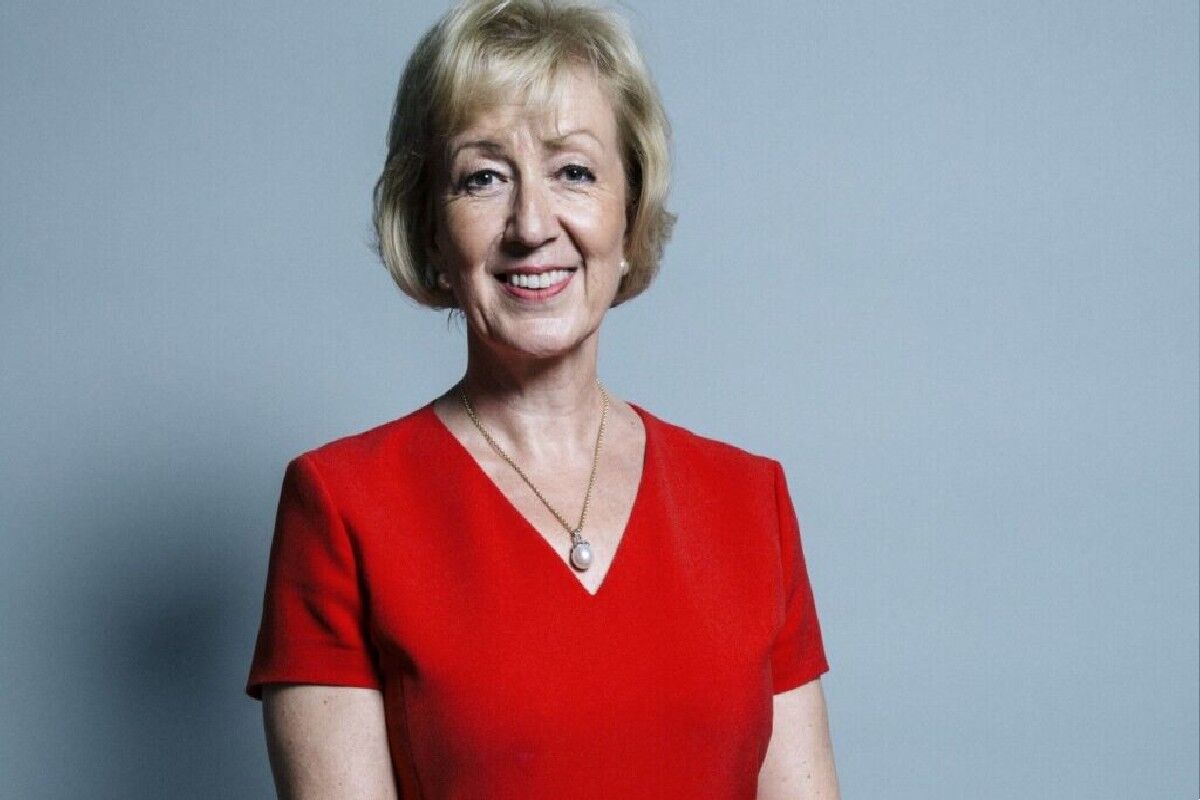Cowper’s Cut 308: The Mundane Apocalypse - the Government’s Millwall health policy

“When asked which issues are likely to be the most important when deciding how to vote, the top issues for the public are the NHS (28%), inflation / rising prices (23%), the economy (22%) and immigration (19%).”
Ipsos Political Monitor, 30 January 2024
How has England’s NHS fared under Conservative governments?@C4Ciaran and @FactCheck have been crunching the numbers. pic.twitter.com/ZlczbG0uyi
— Channel 4 News (@Channel4News) January 31, 2024
This fact-check piece for Channel Four News about NHS performance on key measures since 2011 is staggering. Its summary of the collapse in many key waiting times is brutally clear.
It’s not new news, of course. I know the data: you all know the data.
And even though we know it, it’s still staggering.
Why is this performance collapse simultaneously mundane and apocalyptic?
The first and most obvious point is that for much of it, there is no credible national plan to return to adequate NHS performance. The winter sitreps data show how bad the situation is. It is remarkably bad.
The second, and no less obvious point is that appalling NHS performance has been normalised for a very long time now. You’ll probably remember the winter of 2014-15: it seemed notable because it preceded the 2015 General Election. And you’ll probably also recall the sense of that being an apocalyptically bad winter was everywhere: in every think-tank and Royal College ‘NHS manifesto’.
And nothing has changed as a result. Indeed, things have got worse and worse.
Essentially, the Great British Public have become accustomed to the fact that if you need urgent and emergency care between November and April, then that’s just tough luck because you’re very, very likely to be going to have a totally shit experience.
And we now view this as normal. Business as usual. That for over a third of the year, urgent and emergency care access will mostly suck.
A mundane apocalypse is quite a thing to achieve, but credit to our political and system leaders: they’ve managed it.
Scant surprise, then, that the latest Ipsos Political Monitor finds that “when asked which issues are likely to be the most important when deciding how to vote, the top issues for the public are the NHS (28%), inflation / rising prices (23%), the economy (22%) and immigration (19%).”
Millwall health policy
It’s now clear that the Government’s take on health policy is borrowed from the classic crowd chant of south-east London’s finest association football team, Millwall: “no-one likes us: we don’t care”.
Longstanding hands will remember that the last figure in health policy to reference this mantra was dear old Lord Lansley, at the height of his unpopularity over what eventually become the 2012 Act. It is a niche choice to emulate.
Primary care rejects proposed 1.9% contract uplift
The blue touch paper has been lit: Pulse reports that the BMA’s GP committee has rejected the proposed 1.9% uplift to the GP contract for 2024-5. That’s considerably below inflation.

These matters are, of course, meant to be strictly arms-length-independent and for the Doctors and Dentists Review Body. Health minister and mother Andrea Leadsom confirmed beyond doubt, telling BMA GPC lead Katie Bramall-Stainer that the Government will reconsider the proposed increase once the DDRB has spoken.
Ahem. Wonderful thing, arms-length operational independence.
This looks like exactly the sort of thing a Government would do if it were intent on having a new confrontation with a key professional group.
It’s possible that the current administration has reached the stage of political psychosis where it starts to perceive every bad move it is about to make as an exemplar of the ‘dead cat’ playbook so beloved of longstanding Tory advisor Lyndon Crosby of Crosby Textor.
‘Hey, starting an avoidable fight with the GPs will help distract from the fact that the NHS is on fire, overspent and nothing works!’
‘It’s brilliant. Classic ‘dead cat’: classic! Let’s do it!’
Sure.
What could conceivably go wrong?
One financial woe doth tread upon another’s heels, so fast they follow
To the considerable surprise of absolutely nobody, the financial lying that NHS England blatantly incentivised for local 2023-24 budgets is coming back to haunt them. We see this in the news from Health Service Journal that management consultants are being sent into Staffs and Stoke ICS due to the pending deficit of a chunky £140 million.
This is still dwarfed by Greater Manchester’s £190 million, but nonetheless a fine effort. Well done, chaps!

HSJ’s Henry Anderson reported that “at least 13 integrated care systems have now admitted they will miss the financial plans they signed up for at the start of the year. The number is likely to rise once all 42 ICSs in England have published their third quarter financial reports for 2023-24.
“According to analysis of reported figures for 33 systems by HSJ, the final aggregate deficit across all systems is likely to be around £1.5 billion, even after receiving an £800 million injection in November aimed at funding the costs of industrial action”.
Ooops.
HSJ’s Matt Discombe reported that “NHS England is lobbying ministers for extra funding to ensure all the approximately 99,000 ‘core’ acute hospital beds open this winter are retained throughout 2024-25”.
And then, a miracle happens!
Happily, we can ‘remain calm: all is well’ on the English NHS’s finances.

No, really. At this week’s NHS England board meeting, FD Julian Kelly told a grateful health policy nation that, as Henry Anderson reported, the NHS is to ““live within the NHS mandate as provided to us by government”, meaning he (Kelly) still expects the forecast overspend to be offset.
“It is not clear how NHSE will achieve this. But Mr Kelly told the board negotiations were still ongoing with government over total funding for the year, while there is a possibility of yet-to-be reported underspends within a £3.2 billion “transformation and reserves” pot.”
This is all very ‘and then, a miracle happens!’ territory, no?
The NHS Employment Dispute Derby
And we’re off again, with the ‘it’s a marathon, not a sprint’ NHS Employment Dispute Derby entering its next lap. Isn’t it fun?

On Monday, Health But Social Care Secretary For The Time Being Victoria Atkins told Times Radio, “there will be no more money on the table. And so we’ve got to find ways of working, within this contract or clarifying these issues that have caused problems for some consultants.”
The apparent thinking here is that consultants will go, ‘oh you meant it about no more money? Right, we’ll just bow down to that.’ Which I would suggest is, erm, quite unlikely.
Mmmmmmm.
3️⃣ Today’s offer is final.
— Rishi Sunak (@RishiSunak) July 13, 2023
There will be no more talks on pay.
This country will not be bullied into higher taxes or higher borrowing to fund unrealistic pay demands, risking higher inflation.
The Times write-up of all this is a bit one-sided: it asserts that “prospects are much gloomier for any deal with junior doctors, with ministers still said to be “burnt” by the BMA’s decision to walk out of negotiations last month to stage strikes of unprecedented length over Christmas and New Year. Andrew Stephenson, a health minister, is due to meet the BMA junior doctors’ committee this week for talks about how negotiations might resume … Privately, many in government are far more pessimistic, fearing that the junior doctors’ leadership are less interested in a deal, with hardliners among the membership ready to denounce any agreement as betrayal”.
This is not quite how the junior doctors’ leaders see things, to put it mildly.
They have been clear that the previous talks with the Government ended on the agreed deadline being reached without a satisfactory deal being on the table: it was tacitly confirmed by Victoria Atkins’ own comments that they had not even seen the final offer.
The Times piece also asserts that doctors’ “professional leadership has so far proved unwilling to step in and put pressure on junior doctors, a technique that ultimately ended the last round of industrial action in 2016”. This is simply factually wrong.
It’s true that certain senior medics condemned the 2016 strikes, and sought to hasten their end: those individuals’ positions in the profession’s esteem have never really recovered from doing so. The 2016 dispute was badly led throughout by the official JDC leadership, with a lack of clarity on the key issues being compounded by endless, message-muddying freelance comms ‘stunts’ by other self-perceived leaders.

Most importantly of all, the real end of that dispute came when Health Service Journal’s Shaun Lintern was leaked the WhatsApp conversations that confirmed that junior doctors’ leaders were negotiating in bad faith.
Cronyvirus/coronamillions update
The Guardian has an exclusive report that Michael Gove was personally lobbied by the recipient of the biggest PPE ‘VIP fast-lane’ contract.
It reports that “Gove, then a Cabinet Office minister, had a phone call with a founder of Unispace, an office interior design firm, on 24 March 2020 – the day after the first national lockdown was announced.
“ was at that point controlled by the Australian businessman Gareth Hales – who is the son of the global leader of the Plymouth Brethren Christian sect, Bruce D Hales – and another church member, Anthony Hazell.”

The correspondence underlining this story, with names redacted, was obtained by the Good Law Project: the Open And Candid blog did a lot of the investigative legwork around the Plymouth Brethren’s involvement.
Recommended and required reading
Fine Financial Times article on why UK infrastructure constuction costs are so high.
My latest column for the Pharmaceutical Journal is on the UK’s ongoing medicines shortages.
Charlie Massey (I’ll let you google who he worked with before the GMC) wrote to NHS England stating that he wanted them to assure doctors in UK that they weren’t using PAs to replace doctors. Despite this being in official minutes.
— Eilidh 🦀 (@DrEilidhMaria) January 31, 2024
NHS England haven’t given a response. pic.twitter.com/mf1vhGdPBk
Patient Safety Commissioner for the NHS in England Dr Dr Henrietta Hughes tells The Guardian that racial bias and misogyny in medicine are routinely putting patients at risk.
Cancer Research UK’s new report reveals that since 2010, improvements in cancer care have slowed to their lowest rate yet recorded.
Paul Corrigan’s return to blogging has brought us some amusing observations on NHS England’s non-performance management.


